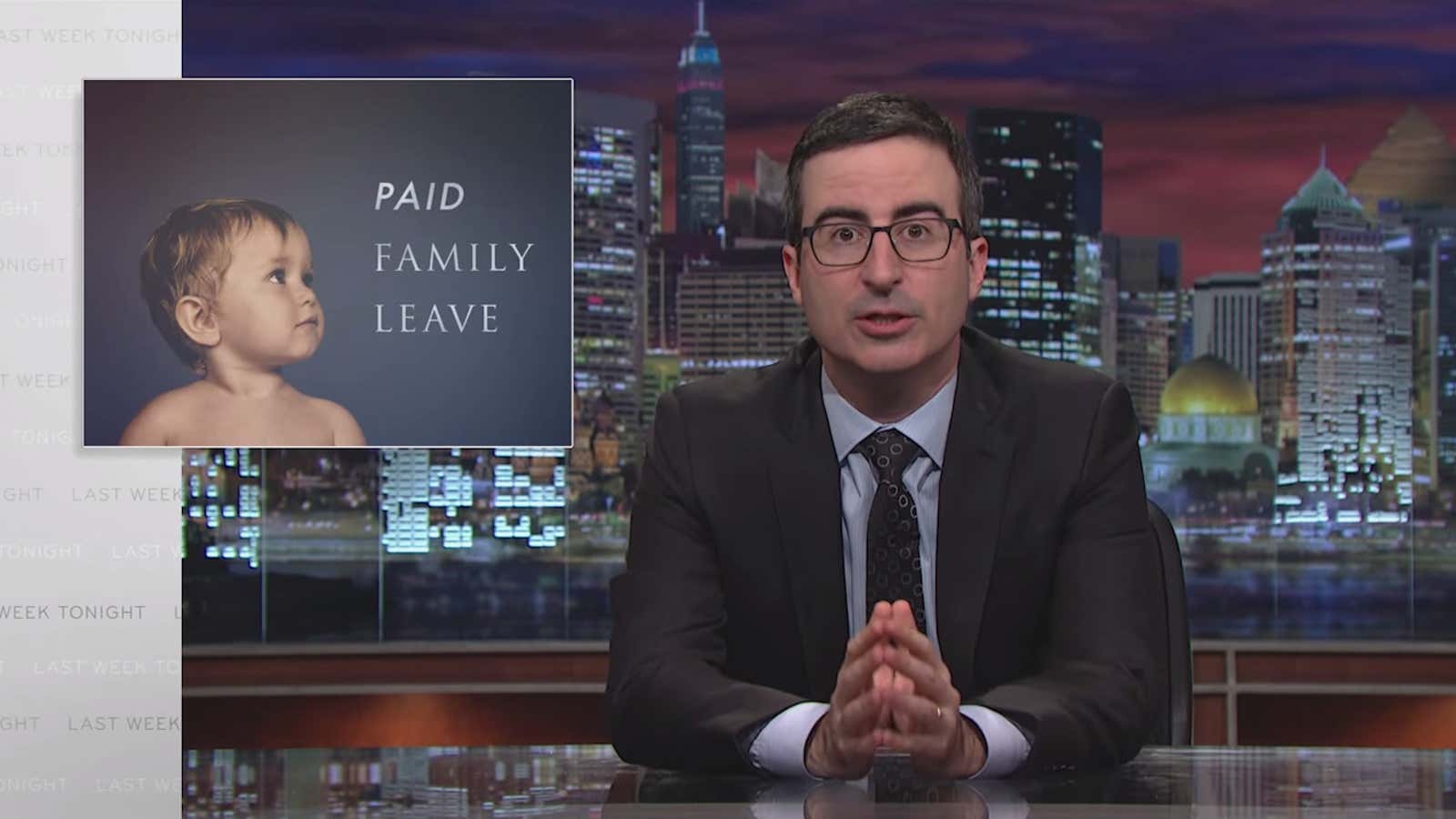US maternity leave policies show about the same level of appreciation as taking your mother to Hooters on Mother’s Day, according to the late-night comedian John Oliver, who used his show to call out US lawmakers’ hypocrisy when it comes to mandating time off after giving birth for the country’s mothers.
“You can’t have it both ways,” Oliver says. “You can’t go on and on about how much you love mothers, and then fail to support legislation that makes life easier for them.”
The country’s mothers, he points out, are in the same boat as mothers in Papua New Guinea—the only countries without any government-mandated paid maternity leave. He sums up the message the US sends as: “You deserve the very best, moms. You’re just not going to get it.”
New parents in the US are guaranteed 12 weeks of unpaid leave, and only if they meet a host of requirements. There are articles and entire books devoted to helping mothers negotiate for better maternity leave conditions with employers. Parents often find themselves cobbling together sick days and vacation days to pay for their time at home.
“Mothers shouldn’t have to stitch together time to recover from childbirth the same way that we plan four-day weekends in Atlantic City,” Oliver said in the video.
Oliver’s team dug up video of Congressional representatives speaking out against the bill allowing today’s unpaid leave system in 1993, calling it “unfair, anti-business, anti-growth, invasive, deathly expensive.” He contrasted that with research that found employers providing unpaid leave were doing just fine in terms of cost and productivity.
Oliver did not touch on another important point, one that could actually encourage lawmakers to shift their stance: Women are integral to the US workforce, and better paid family leave policies would allow them to remain a part of workforce in the long term.
